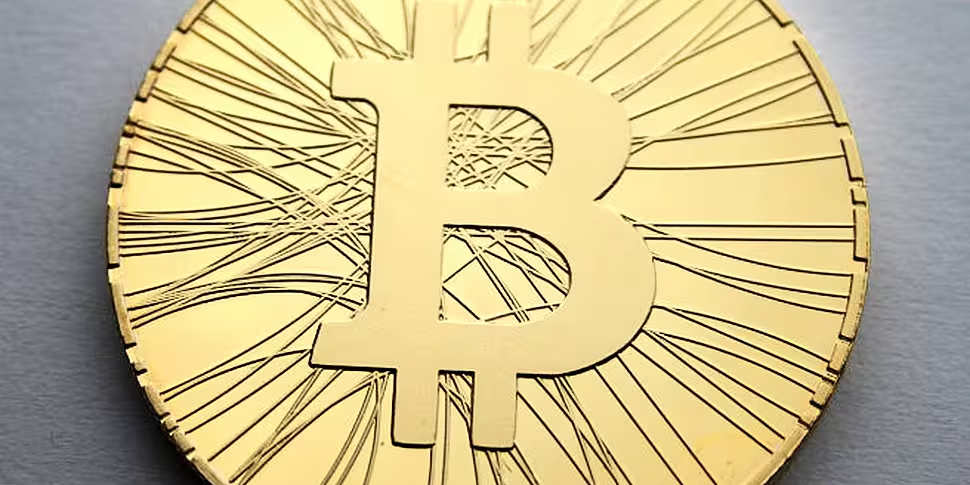Newstalk Magazine is available now for free from the Apple app store.
For evangelists of Bitcoin the day will soon come when the digital currency will be ubiquitous.
We’ll transact everything from paying for a coffee to booking a holiday by transferring Bitcoins from digital wallets stored on our smartphone. It represents the future: a currency without a country, unregulated by governments and banks, freeing up the movement of money across the world in an instant.
For its detractors Bitcoin is the latest in a long line of financial scams designed to part people from their cash. Think tulip bubble, dotcom mania and Bernie Madoff mixed with a bit of technology.
The idea of a digital, or crypto, currency has been floating around for some time. But it’s the rise in Bitcoin in 2008 that has stood out.
Its popularity surged during the Eurozone debt crisis in 2012 and 2013. People terrified that their savings would be confiscated by governments looking to pay for bank losses – as happened in Cyprus – looked for a safe haven to store their cash and the value of the little-known Bitcoin soared.
Bitcoin is the brainchild of Satoshi Nakamoto, the full identity of whom is still not known (and that is itself a mystery that is deepening). A paper published online by Nakamoto in 2009 outlines how it works.
Bitcoin is created by individuals who act as so-called "miners" using powerful computers to create Bitcoins. And if the idea of becoming a computing genius seems too much, then it can be bought at online exchanges that are springing up with increasing regularity. All it requires is creating a digital wallet to transfer Bitcoin in and out of.
The benefits are the low cost of transferring money between people, without a bank taking a cut, and with increased speed and security from one digital wallet to another. There are other benefits. Bitcoin is anonymous, with only the transactions logged online not who is using it (hence its association with illicit activities and money laundering).
And there will only be a finite number of Bitcoins mined, 21 million in total, which means the currency can never be devalued, easing the fears of many at time when central banks are printing money.
You may not be yet able to spend it in Tesco or at Amazon, but Bitcoin acceptance is increasing. And it's made its way to Ireland, albeit in a small way with the launch in March of the first Bitcoin ATM in Dublin. They suffered their first setback almost immediately when Bank of Ireland rejected their application for a bank account, on the grounds that the company did not “meet the appropriate criteria”.
Acceptance here has been minimal with just a handful of places from a café in Temple Bar (who have since had to pull out due to “complications”) and a B&B in Offaly agreeing to take the currency as payment.
The first ever Bitcoin ATM was unveiled in San Diego in May 2013

Overseas, usage is becoming more widespread with the online retailer Overstock accepting it.
It’s also been given a profile boost with the seal of approval by the tech community in the US. Cameron and Tyler Winklevoss, the American twins who battled with Mark Zuckerberg over the ownership of Facebook, have poured millions into Bitcoin to try and make it more mainstream. The brothers have even paid for their seats on Richard Branson’s Virgin Galactic flight using Bitcoin.
But Bitcoin has suffered huge, and possibly fatal, setbacks. In February the world’s largest Bitcoin exchange, the Japan-based Mt Gox filed for bankruptcy protection saying it found a “fundamental flaw” in its business. Effectively Bitcoin worth €362 million had gone missing and those who owned it are out of pocket.
And that has been just one of its problems. Like any currency it can fluctuate. But its swings have been more volatile than what is usually seen in foreign exchange markets. In March, one Bitcoin was worth $550. That price has swung in the last 12 months to more than $1,400 and below $100.
Such has been the pace of Bitcoin’s growth and its recent problems that it has come across the radars of regulators and governments. The Mt Gox scandal has prompted investigations around the world into its collapse and how hundreds of millions of dollars just vanished, while smaller exchanges are also under scrutiny.
So will Bitcoin succeed and become a part of everyday life and even reinvent the global payments system?
While new trading exchanges are popping up, it’s likely that regulators will look to have oversight so that investors don’t end up losing their money. Given that the transactions are pretty much anonymous, it’s hard to see that in an era where the proceeds of crime and terrorist financing are under so much scrutiny, any untraceable payments can exist.
Perhaps it won’t be Bitcoin that will transform the way we think of money. Rivals like Litecoin and Dogecoin have been spawned. To its supporters it is only a matter of time before money as we know it changes.
This article originally appeared in Newstalk Magazine for iPad in March, for more details go here.









